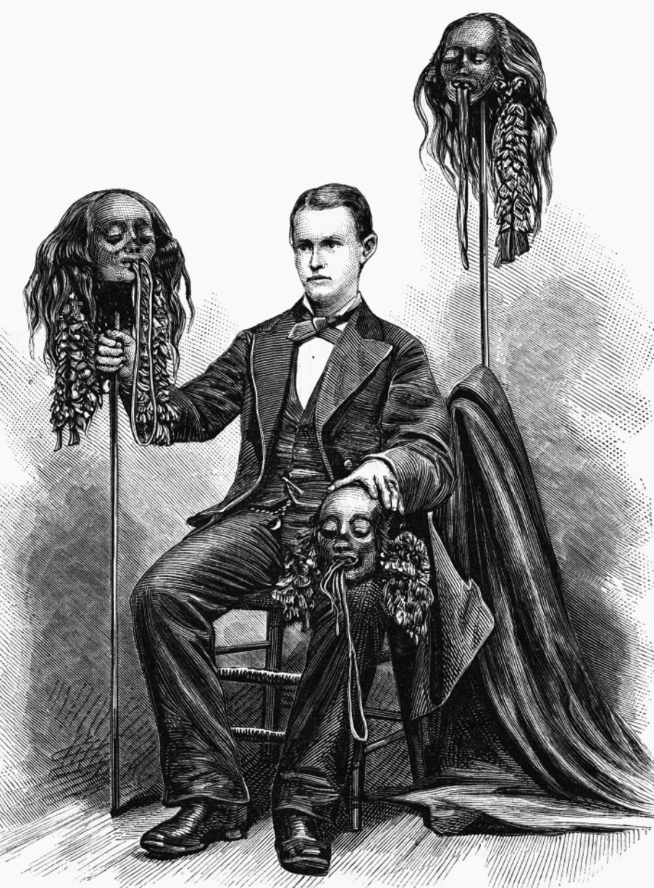
Corvus the Raven: On the Subject of Diminished Craniums and Continental Incomprehension
Share
Being the considered observations of Corvus Blackwood, Fellow of the Royal Ornithological Society
Allow me to recount an incident of particular anthropological significance which I observed during my extended residency in the Amazonian basin. The year was 1599, and I had positioned myself advantageously within the canopy to observe the curious spectacle of European exploration—or rather, European blundering—in territories already possessed of sophisticated civilisation.
The protagonist of this tale was one Captain Fernando de Bracamonte, whose navigational abilities were inversely proportional to his confidence in them. Having abandoned his search for mythical cities of gold, he found himself accepting the hospitality of the Shuar people, whose mastery of anatomical preservation techniques represented centuries of refined knowledge.
The moment of revelation arrived when Chief Tsamaraint presented the Captain with a ceremonial tsantsa. The Spanish gentleman's composure, already tenuous in these unfamiliar circumstances, abandoned him entirely. Here was a human head, reduced through meticulous preparation to the dimensions of a child's fist, yet retaining every lineament of its former owner's countenance.

What struck me most profoundly was not the Captain's obvious discomfort, but his complete failure to grasp the theological sophistication at work. The Shuar understood that to possess an enemy's head was to possess their spiritual essence, preventing their return as an avenging spirit. This represents a remarkably nuanced understanding of mortality and supernatural agency—concepts which would have challenged the finest minds of Salamanca.
The Captain secreted this remarkable artifact with unseemly haste, treating it as mere curiosity rather than recognising it as evidence of a complex metaphysical system. One observes that European scholarship, for all its pretensions, remains remarkably parochial in its assumptions about civilisation and knowledge.
—Corvus Blackwood, from his "Meditations on Colonial Encounters"
